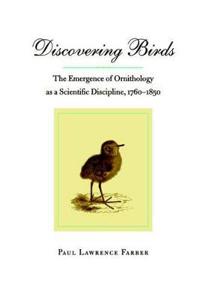Temptations of Evolutionary Ethics, The (Övrig)
avPaul Lawrence Farber
ISBN: 9780520213692 - UTGIVEN: 1998-06-23Evolutionary theory tells us about our biological past; can it also guide us to a moral future? Paul Farber's compelling book describes a century-old philosophical hope held by many biologists, anthropologists, psychologists, and social thinkers: that universal ethical and social imperatives are bui[...]
Discovering Birds (Pocket)
avPaul Lawrence Farber
ISBN: 9780801855375 - UTGIVEN: 1996-12In Discovering Birds, Paul Lawrence Farber rejects the view that eighteenth-century natural history disappeared with the rise of nineteenth-century biology. In this penetrating case study of the history of ornithology, Farber demonstrates interesting continuities: as natural history evolved into in[...]
Finding Order in Nature (Häftad)
avPaul Lawrence Farber
ISBN: 9780801863905 - UTGIVEN: 2000-07Since emerging as a discipline in the middle of the eighteenth century, natural history has been at the heart of the life sciences. It gave rise to the major organizing theory of life-evolution-and continues to be a vital science with impressive practical value. Central to advanced work in ecology, [...]
Mixing Races (Pocket)
avPaul Lawrence Farber
ISBN: 9780801898136 - UTGIVEN: 201012This book explores changing American views of race mixing in the twentieth century, showing how new scientific ideas transformed accepted notions of race and how those ideas played out on college campuses in the 1960s. In the 1930s it was not unusual for medical experts to caution against miscegena[...]






